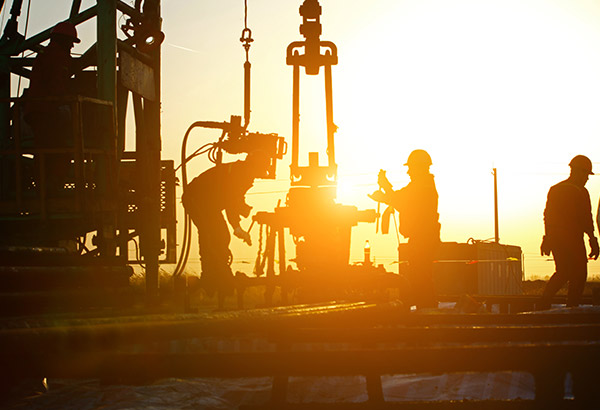
An Intensive 5-day Training Course
Work-Over Operations
Perceptions of Workover Planning, Implementation and Troubleshooting
Would an alternative date be more suitable?
We offer a variety of tailored training options, customized to meet your organisation's needs. Delivered anytime, anywhere, we make it easy to bring expert training directly to your team.
Why Choose this Training Course?
In the development of reservoir, an outsized variety of wells are drilled and need to be completed, to permit the structure to be depleted. However, the drilling and completion operations are crucial to the long run viability of the wells in meeting the desired objectives. The completion of each production and injection wells are needed to satisfy variety of objectives including:
- Provision of optimum production/injection performance
- Ensure safety
- Maximize the integrity and dependability of the completion over the envisaged lifetime of the well
- Minimize the full prices per unit volume of fluid produced or injected, i.e
- Minimize the prices of initial completion, maintaining production and remedial measures
Primarily during this PetroKnowledge training course, we will focus on issues related to the completion string design new technology in addition to well interventions tools.
This PetroKnowledge training course will feature:
- Develop a high-level completion strategy for wells in a very sort of things
- Select string, packers, and completion flow management instrumentality
- Best practices of completion string design and installation
- Discuss cases of using new technology in normal completion and sand control completions
- Appraise well control barrier philosophy and testing during well interventions
What are the Goals?
By the end of this PetroKnowledge training course, participants will learn to:
- Evaluate for a given reservoir scenario the bottom hole completion options and make a recommendation based on well integrity and reservoir management requirements
- Identify, evaluate and recommend functional capability of completion strings for a variety of situations
- Describe the purpose and generic operating principles for major completion equipment components
- Identify limitation of well completion schematically designs and potential failure mechanisms/operational problems with equipment
- Assess well safety requirements and capabilities inherent in well design
- Describe the integration of the various stages of completing a well
Who is this Training Course for?
This training course is suitable to a wide range of professionals and will greatly benefit:
- Petroleum Engineers
- Production Technologists
- Production supervisors and engineers
- Completion supervisors and engineers
- Drilling supervisors and engineers
- Work-over and well service supervisors
How will this Training Course be Presented?
This PetroKnowledge training course will be presented using properly designed slides, some and animation on relevant issues. A printed manual containing all the slides and/or electronic form in PDF will be delivered to each attendant. Teaching methods include several examples of actual well intervention programs.
Organisational Impact
The organization will gain, in sending their employees to attend this particular PetroKnowledge training seminar, the following:
- Reduction in the cost of the well and the proper selection of production string
- Ensuring the well integrity and avoiding all risks during ringless operations
- Extending the well life and control it, achieve the optimum production using well interventions instead of normal rig operations
Personal Impact
- Obtain integrating knowledge of well completion design
- Hone their knowledge and get the self-confidence in designing proper completion
- Get the latest technology in well operations
- Solving and avoiding the problems which impact on the optimum production, and well integrity
Daily Agenda
Day One: Well Completion Design, Practices, and Strategies
- Introduction of Reservoir Drive Mechanism
- Introduction into Artificial lift methods and their application
- IPR and Productivity Index
- Vertical Lift Performance
- Well Outflow and Inflow Systems
- Typical Vertical Lift Performance (VLP) for various Tubing Sizes
- Matching VLP curves with an IPR curve
- Well Completion Design Considerations
- Reservoir Considerations
- Mechanical Considerations
- Classification of Completions
Day Two: Lower and upper completion string components and Selection consideration
- Lower and upper completion string components and selection consideration
- Production Packer functions
- Packers Types
- Packers Generic Mechanisms
- Permanent and Retrievable Packers
- Locator Seals and Anchor Seals
- Applications for Permanent and for Retrievable Packers
- Setting Packers
- Inflatable Packer applications
- Sliding side door function
- Gas lift mandrel
- Running the completion
- Perforation methods and perforating equipment
- Perforation selection and conveying methods
Day Three: Wellheads / Sub-surface Safety Valves and Flow Control Equipment
- Wellheads components, function and types
- Subsurface safety valves function
- Safety valves types
- Setting depth of subsurface safety valves consideration
- Surface control subsurface safety valves.
- Flow control devices
- Nipple profiles types and plug selection
- Workover reasons
- Well killing operations technique and consideration
Day Four: Sand Control Completions, Alternative New Standalone Screen Technology
- Sandstone Formation Properties and Geology
- What causes Sand Production?
- Consequences of sand production downhole and on surface
- What is the mean of sand control?
- Perforation system for non-sand control completion
- Sand control options
- Chemical Consolidation
- Mechanical sand control methods
- Cased Hole Gravel Pack
- Open Hole Gravel Packing
- Expandable Screens
- Gravel Pack Design, Gravel Sizing and Slot Sizing
- Placement Methods
- Carrier Fluid Concept
- Choosing the appropriate method of Sand Control
- Losses controlling during sand control operations
- Perforating system for sand control
- Standalone screen applications
Day Five: Well Interventions Theory
- Wireline types and application
- Surface and subsurface components of wireline
- Tubing leak identification and repair using straddle system case study
- Coiled Tubing surface and subsurface components
- Coiled Tubing applications
- Formation damage mechanisms and their remediation
- Stimulation design considerations and new techniques of stimulation
Certificate
- On successful completion of this Training Course / Online Training Course, a PetroKnowledge Certificate / E-Certificate will be awarded to the delegates.
